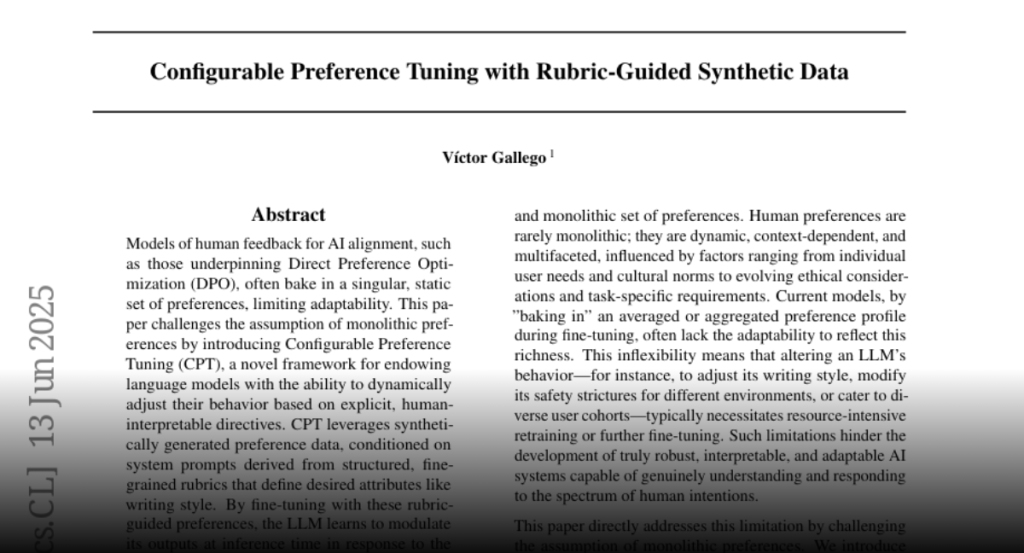Configurable Preference Tuning enables language models to dynamically adjust their behavior based on human-interprettable directives, using rubric-guided preference data for fine-tuning and inference-time modulation.
Models of human feedback for AI alignment, such as those underpinning Direct
Preference Optimization (DPO), often bake in a singular, static set of
preferences, limiting adaptability. This paper challenges the assumption of
monolithic preferences by introducing Configurable Preference Tuning (CPT), a
novel framework for endowing language models with the ability to dynamically
adjust their behavior based on explicit, human-interpretable directives. CPT
leverages synthetically generated preference data, conditioned on system
prompts derived from structured, fine-grained rubrics that define desired
attributes like writing style. By fine-tuning with these rubric-guided
preferences, the LLM learns to modulate its outputs at inference time in
response to the system prompt, without retraining. This approach not only
offers fine-grained control but also provides a mechanism for modeling more
nuanced and context-dependent human feedback. Several experimental artifacts,
such as training code, generated datasets and fine-tuned models are released at
https://github.com/vicgalle/configurable-preference-tuning

